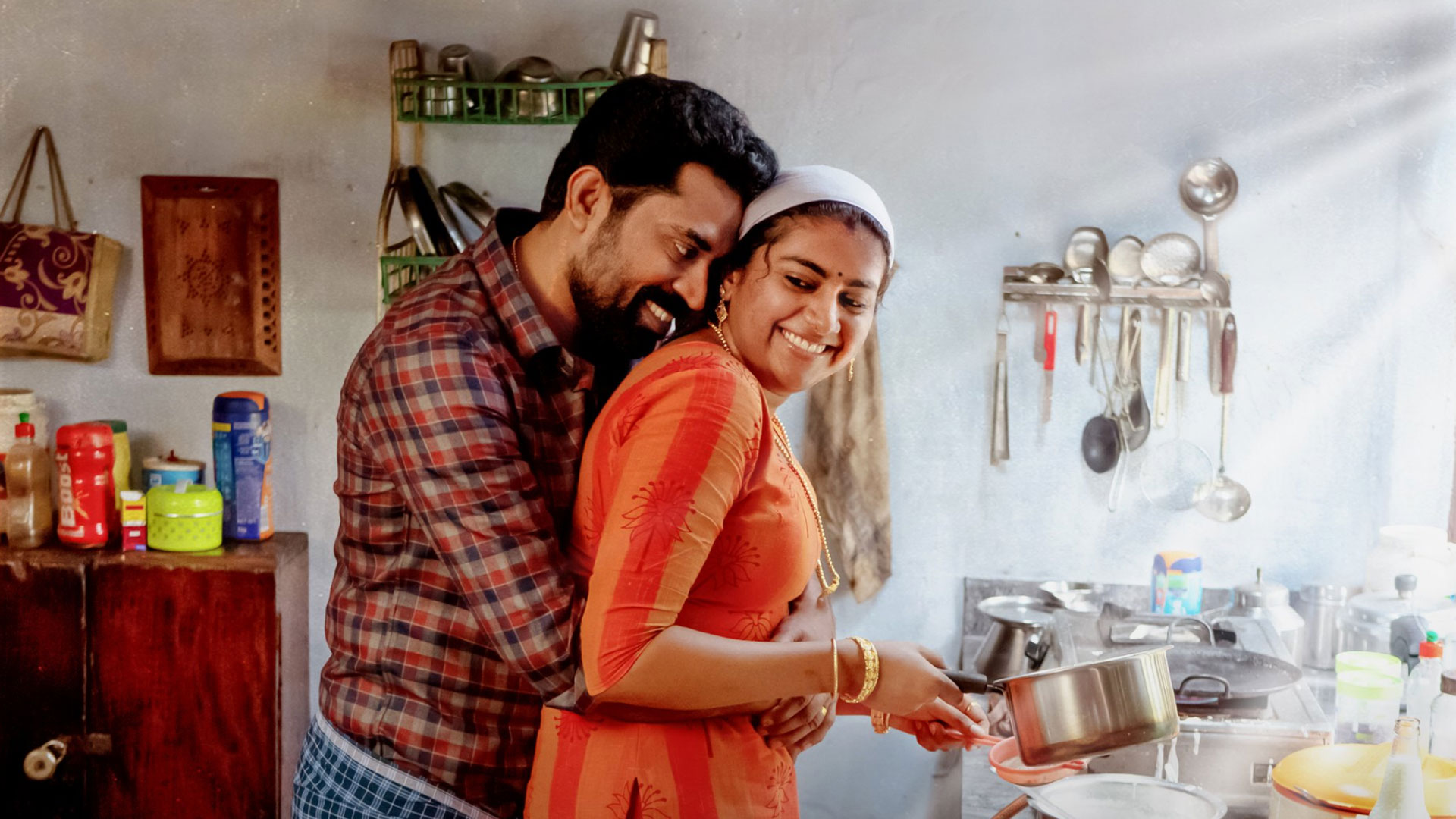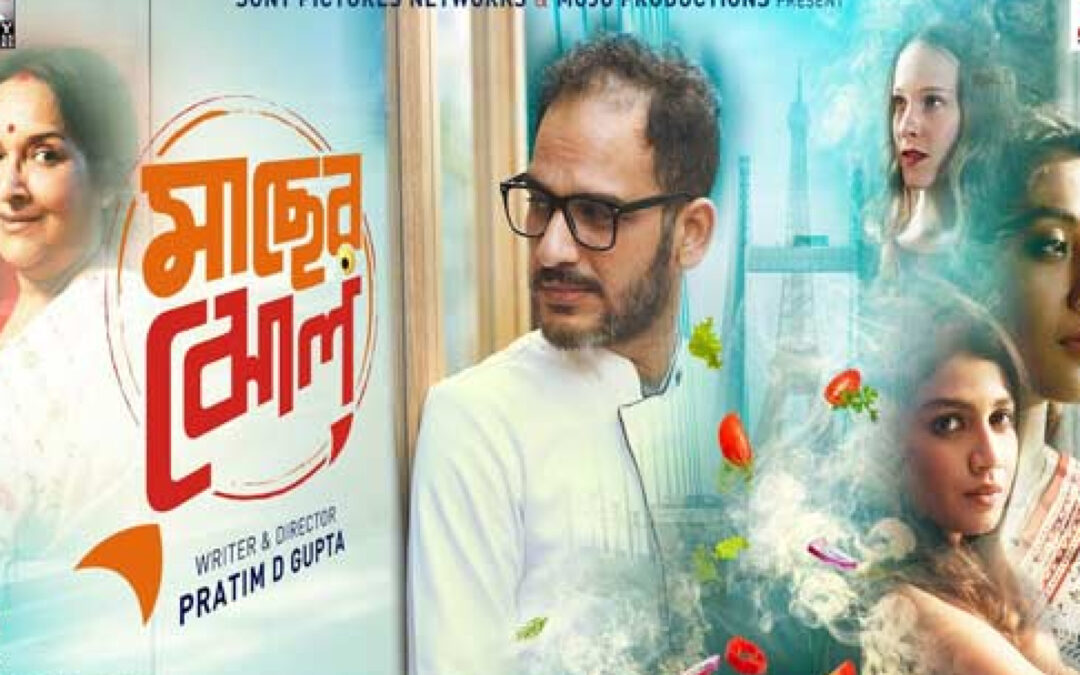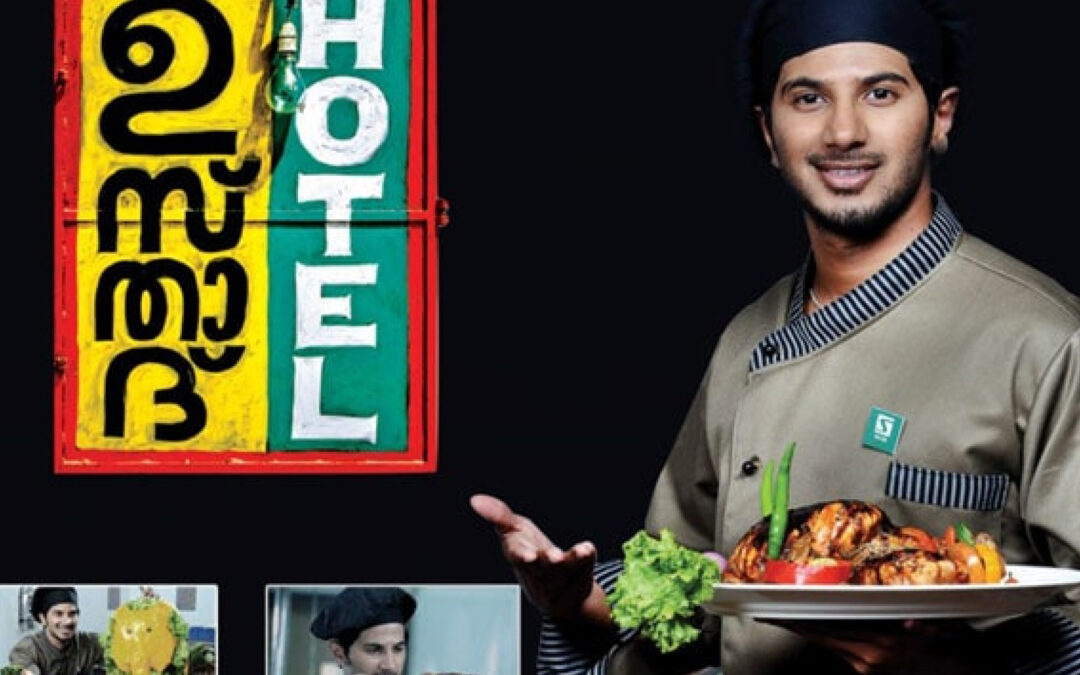In the 6th century B.C., Sumangalamata, the wife of an umbrella maker, mother of Sumangala, left her family to become Theri, a Buddhist nun. This is a poem that she wrote while she was experiencing the sweet taste of liberation.
A woman well set free! How free am I
How wonderfully free, from the monotony of the kitchen.
Free from the clutches of hunger,
And from the empty pots,
Free also from that unscrupulous man,
The parasol weaver.
Translated by: Uma Chakravarti and Kumkum Roy
From: “Women Writing in India, edited by Susie Tharu and K. Lalita
Thousands of years later, Indian cuisine continues to have a stranglehold on women across the country. Last week, I saw the Malayalam movie – ‘The Great Indian Kitchen’, (TGIK) directed by Jeo Baby. The kitchen is the most important character in the film that assumes many roles: it starts as a safe place for food production, a training place for a new daughter-in-law and soon becomes a labor camp, a prison cell and a graveyard of murdered dreams. Food production is a chore here, nothing like the joyous creative activity romanticized on every cooking show. Peeling, chopping, grinding, frying, stirring, followed by the endless washing, clearing and cleaning are thankless tasks imbued with sinister menace. This factory earns the displeasure of the men who seem blissfully oblivious to all the hard work involved in preparing a single meal. The father-in-law in the film insists that the rice be simmered in a traditional wood-burning stove and his son follows his lead, leaving the women to clean up the messy detritus from their meals.
Patriarchy is not just about blatant abuse, harassment, or mistreatment of women. I have seen many cases where food production and consumption were viewed through a gendered lens. During festivals and functions, women worked in the kitchen preparing a variety of delicacies, then served the men, only eating afterward. No one served the women hot food on their plates. This was normal. Any man who showed any interest in entering the kitchen was shooed away. The used dishes were taken from her hands and carried to the sink. The girls were asked to serve guests coffee and help cook. The children were left to their own devices. Women are judged on their ability to produce seven-course meals and men on their ability to earn seven-figure salaries.
Interestingly, most professional cooks are men and almost all home cooks are women who are not paid for their work. The ideal wife and mother are supposed to cook with love and feed her family with devotion and care. She is supposed to be grateful for this opportunity to serve and do her duty. Yes, there are many women (and men) who enjoy cooking, who see it as a creative expression as well as a way to feed their family but when there is no other choice in the matter, when there is no support for hard work, when there are endless irrational expectations, Great Indian Kitchen can turn into a terrible hell. The aroma of freshly ground spices is replaced by the stench of rotting waste. Resentment simmers, rage boils over and the pressure cooker of repressed emotions explodes.
Unlike her mother-in-law, who has toiled uncomplainingly in the kitchen for years, TGIK’s heroine is unwilling to sacrifice her freedom and happiness on the stove of patriarchal norms. Watch the movie to see if she escapes the monotony of the kitchen and the unscrupulous man, like the Buddhist nun. Many women are not so lucky. The current pandemic situation has not made things easy for women who need to run the kitchen, take care of the children and do their own work. There is no escape from housework. If we want to create a more just and equitable outside world, we have to start from within the home, from the confines of the Indian kitchen. We need some simple mindset changes from men and women.
It’s okay to eat leftovers.
One casserole rotis and dosas are edible and tasty.
Every meal doesn’t have to be a major production.
Boys can cook and wash dishes without detracting from their masculinity.
Allowing men into the kitchen is not a violation of tradition.
Serving simple, healthy meals in one pot doesn’t make her a bad woman.
The kitchen becomes great not because of the quantity or quality of the meals produced but by allowing both genders equal access to and equal ownership of the food produced therein.






